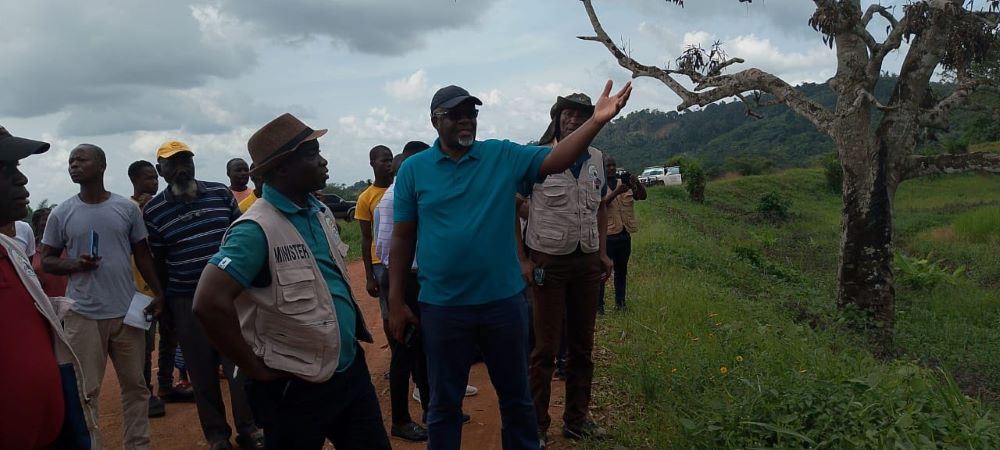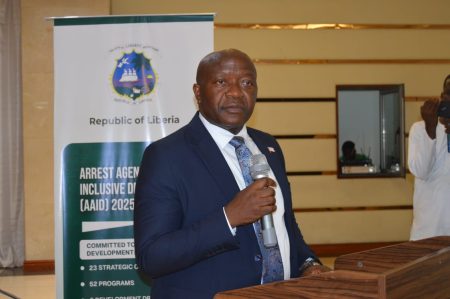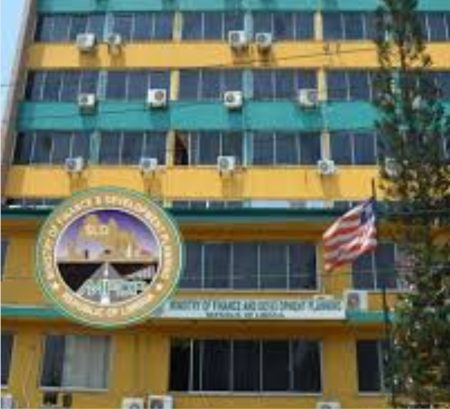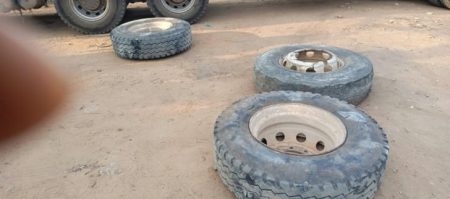On November 2, 2024, Liberia’s Agriculture Minister, Dr. J. Alexander Nuetah, emphasized the critical importance of rice as a staple food for the local population during his visit to lower Bong County, specifically Bong Mines. The Agriculture Ministry is on a mission to enhance food security and reduce the country’s dependency on imported rice, which has reached about 70% of the rice consumed by Liberians. By launching a lowland rice harvest covering 100 acres, the ministry aims to significantly increase local rice production, thereby aligning with the “Liberians Feed Yourselves” initiative championed by President Joseph N. Boakai. Partnering with the Makona Agriculture and Development Corporation (MADECO) and local farmers led by Mr. James T. Nyumah, the ministry is underscoring its commitment to advancing agricultural capability in Liberia.
Minister Nuetah detailed the Ministry’s efforts at the recent harvest, highlighting MADECO’s average capacity of 215 acres and the significant potential seen within the newly launched initiative. This bumper harvest is expected to augment the nation’s overall rice output while reinforcing the government’s dedication to enhancing agricultural standards nationwide. In addition to the launch, Minister Nuetah also visited the Fuamah Multipurpose Cooperative, which has received support to amplify local rice production. The Cooperative is centrally involved in the establishment of a large-scale lowland rice production area encompassing 900 hectares out of a potential total of 2,400 hectares, further portraying the Ministry’s enthusiasm for expanding rice cultivation in the region.
In his discussions with farmers and cooperative officials, Minister Nuetah encouraged all parties to contribute to the fight against food insecurity in Liberia. By engaging with farmers and observing ongoing agricultural projects, he aimed to inspire a collective effort to boost food production across the country. He noted that the primary motivation for the visits and investments was to elevate rice farming, critical not only for local consumption but also for broader economic stability. His remarks at the Fuamah Multipurpose Corporation reflected optimism about the progress being made and the necessity for continued collaboration among various stakeholders in Liberia’s agricultural sector.
Highlighting the pressing issue of food importation versus local production, Minister Nuetah remarked on Liberia’s dependency on foreign rice. He humorously noted the country’s appetites for rice do not translate into domestic production capability, stressing that achieving self-sufficiency in rice is a national imperative stipulated by President Boakai. Nuetah further signified that enabling Liberians to feed themselves is inextricably linked to national development and economic resilience, making it essential to overcome challenges inhibiting local farmers from fully realizing their productive potential.
Plans for increasing rice production include seeking potential investors to develop the entirety of the available land in collaboration with local farmers. Minister Nuetah expressed aspirations for significantly heightened agricultural output, aiming to cultivate 1,000 hectares in the next planting season. His vision reflects a strategic push to enhance both the capacity of local farmers and the scale of operations in rice production. Such initiatives, he suggested, could potentially allow for two or three harvests per year if the appropriate agricultural infrastructure and facilities are put in place.
In a separate acknowledgment, leaders from MADECO and the Fuamah Multipurpose Cooperative conveyed their gratitude for Minister Nuetah’s visit, emphasizing that it has served as motivation to step up their commitments to local rice cultivation. Mr. Nyumah and Mr. Prince D. Peters, the cooperative’s chairman, affirmed their readiness to collaborate with the Ministry to fulfill President Boakai’s vision for agricultural independence and food security. Their collective words underscore the positive impact of government engagement on grassroots initiatives and reflect a burgeoning optimism among Liberian farmers about the future of rice production in the country. Through sustained cooperation and investment, there is a palpable hope that Liberia can transcend its reliance on imports and cultivate a robust, self-sufficient agricultural sector.













![U.S. Embassy Addresses Governance Reform in [Country/Location]](https://westafrican.news/wp-content/uploads/2025/09/L-R-Justice-Minister-Cllr.-Tweah-and-US-Charge-dAffaires-Zadrozny.png)
